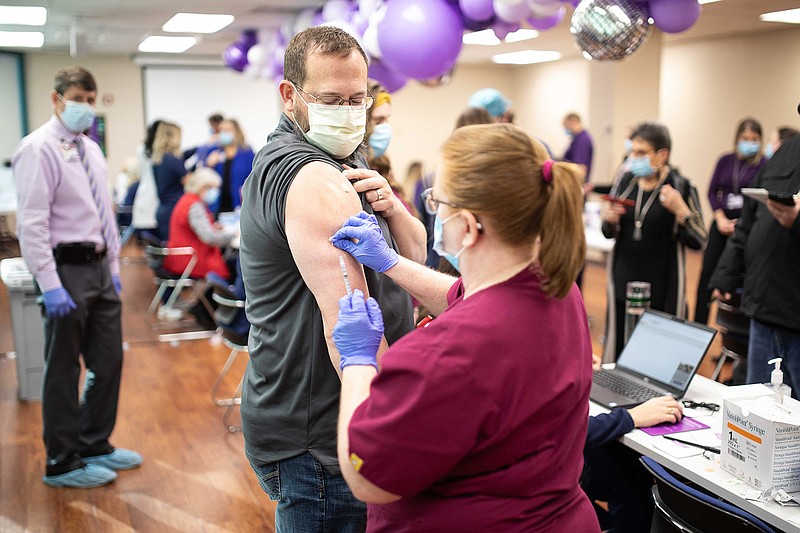TEXARKANA - As the novel coronavirus SARS-CoV-2 spread worldwide, infecting about 82.8 million people and killing about 1.81 million by the end of the year, the Texarkana region was not immune to the pandemic's harms.
As of Wednesday, more than 2,900 residents of Bowie County, Texas, had been infected, resulting in 120 deaths because of COVID-19, the disease caused by the virus. Miller County, Arkansas, had reported more than 1,900 cases resulting in 17 deaths. Texas, Arkansas and Louisiana public health authorities reported thousands of more coronavirus cases and hundreds of more COVID-19 fatalities in the broader Texarkana region.
Loved ones grieved those lost to the disease. Many who survived the illness faced the possibility of long-term health effects medicine is only beginning to understand. Coping with the pandemic and taking steps to slow its spread changed daily life for many, most significantly by disrupting the economy and causing widespread spikes in unemployment.
As candidates, including those for the U.S. presidency, campaigned ahead of November's general election, governmental pandemic response became a political issue. Many resisted government mandates to wear protective face coverings, restrict business activity and limit gatherings. Others saw state and federal government action as fatally blundered.
Locally, city and county officials responded in accordance with guidance and mandates from Austin and Little Rock, with restrictions - including nightly curfews for a time - tightening and loosening as case counts waxed and waned.
Bowie County Judge Bobby Howell and other local officials first addressed the pandemic in early March, seeking to assure residents that government and health care infrastructure were prepared for coronavirus outbreaks.
Later that month, Bowie County reported its first confirmed case of coronavirus infection. Both Texarkanas; Miller County, Arkansas; and Bowie and Cass counties in Texas enacted emergency action plans and opened a joint operations center to coordinate testing, contact tracing and other responses to the pandemic. Miller County and Texarkana, Arkansas, later left the joint operation.
Texarkana's first death because of COVID-19 came March 31, when a 70-year-old local woman succumbed to the disease.
In April, coronavirus cases spiked among prisoners at the Texas Department of Criminal Justice's Barry Telford Unit in New Boston, resulting in multiple deaths.
Parents and teachers struggled to continue with children's education as local schools canceled in-person classes and transitioned to online learning. Restaurants and retailers adjusted to restrictions on how they did business, and major local employers such as Cooper Tire and Rubber Co. shut down operations entirely for a time.
Local nonprofits such as the Salvation Army and the Harvest Regional Food Bank responded to community need with food drives and other charitable activities.
After spring and summer surges in coronavirus cases, a larger third wave in the fall prompted the presidents of Wadley Regional Medical Center and CHRISTUS St. Michael Health System to issue a joint open letter in November urging locals to adhere to health safety guidelines such as masking, social distancing and frequent hand-washing.
New hope arrived by the end of the year in the form of two coronavirus vaccines approved for emergency use by the Food and Drug Administration. But by then, the virus' unchecked spread in the U.S., resulting in record numbers of deaths and hospitalizations, meant Americans faced the worst effects of the pandemic for months to come before enough people could be inoculated to restore normality.

